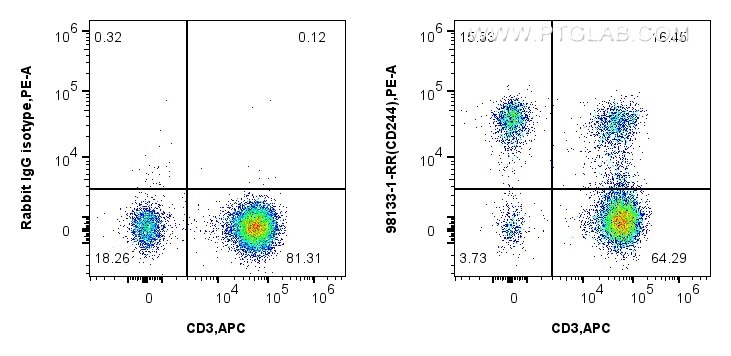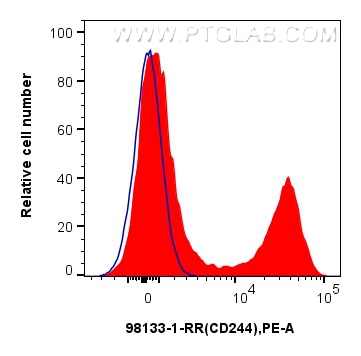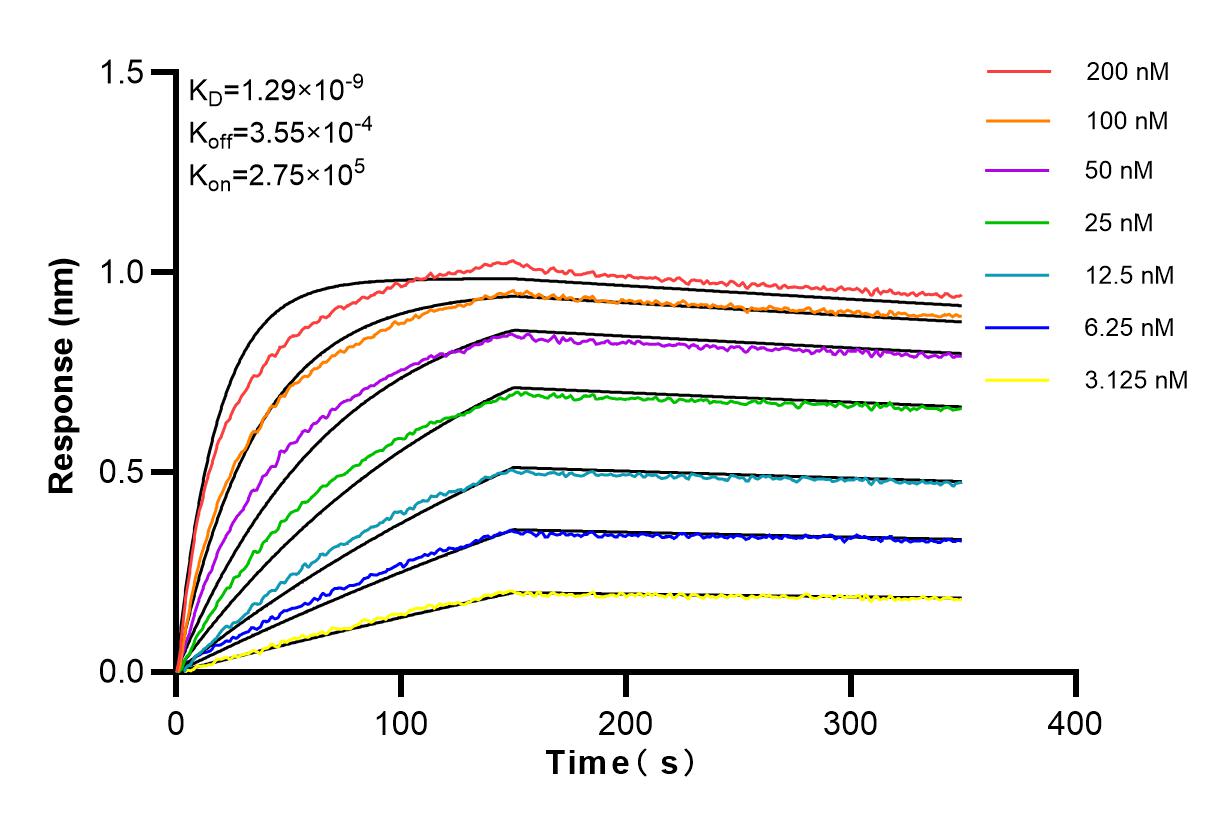Validation Data Gallery
Tested Applications
| Positive FC detected in | human PBMCs |
Recommended dilution
| Application | Dilution |
|---|---|
| Flow Cytometry (FC) | FC : 5 ul per 10^6 cells in 100 μl suspension |
| This reagent has been tested for flow cytometric analysis. It is recommended that this reagent should be titrated in each testing system to obtain optimal results. | |
| Sample-dependent, Check data in validation data gallery. | |
Product Information
98133-1-RR targets CD244 in FC applications and shows reactivity with human samples.
| Tested Reactivity | human |
| Host / Isotype | Rabbit / IgG |
| Class | Recombinant |
| Type | Antibody |
| Immunogen | Recombinant protein 相同性解析による交差性が予測される生物種 |
| Full Name | CD244 molecule, natural killer cell receptor 2B4 |
| Calculated molecular weight | 365 aa, 41 kDa |
| GenBank accession number | BC053985 |
| Gene Symbol | CD244 |
| Gene ID (NCBI) | 51744 |
| RRID | AB_3672279 |
| Conjugate | Unconjugated |
| Form | Liquid |
| Purification Method | Protein A purfication |
| UNIPROT ID | Q9BZW8 |
| Storage Buffer | PBS with 0.09% sodium azide{{ptg:BufferTemp}}7.3 |
| Storage Conditions | Store at 2 - 8°C. Stable for one year after shipment. |
Background Information
CD244, also known as SLAMF4 or 2B4, is a type I transmembrane glycoprotein belonging to the signaling lymphocyte activation molecule (SLAM) family. It consists of an extracellular segment with two immunoglobulin (Ig)-like domains, a transmembrane region, and a cytoplasmic domain containing tyrosine-based motifs (PMID: 9841922; 30546369). CD244 is present on natural killer (NK) cells, γδ T cells, a subset of CD8+ T cells, monocytes, basophils, dendritic cells, and myeloid-derived suppressor cells (MDSCs) (PMID: 30546369). It binds to CD48 with high affinity and transmits stimulatory or inhibitory signals that regulate immune function (PMID: 9841922; 18523281).
Protocols
| Product Specific Protocols | |
|---|---|
| FC protocol for CD244 antibody 98133-1-RR | Download protocol |
| Standard Protocols | |
|---|---|
| Click here to view our Standard Protocols |


